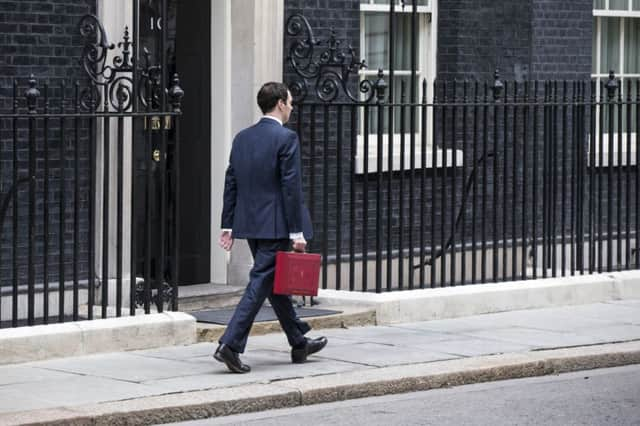Leaders: Pensions freedom should not come at price


This measure, of course, has an obvious political point: to woo older voters with an election just five weeks away. However, the policy follows years of anger and frustration over the raw deal offered to many who found themselves stuck with a poor annuity rate and unable to control savings that they had accumulated over a lifetime. It is also backed by the Liberal Democrats – indeed, it owes much to the work of Lib Dem pensions minister Steve Webb.
Overall, we believe that pensioners should have this freedom over their nest eggs. But the worry, of course, is that while this freedom is broadly welcome, is it a sensible move for individuals? The last big change towards “pensions freedoms” in 1988 resulted in an epidemic of mis-selling costing the savings industry untold millions in compensation – and causing hardship for a generation of retirees.
Advertisement
Hide AdAdvertisement
Hide AdAnd previous government interventions in the name of “simplification” have tended to result in the opposite. From 1987 to 1999 there were 74 changes to the UK’s pensions regime. Between 2000 and April 2006 there were 315.
Given all this, might not some be tempted to take the cash and risk leaving themselves under-provided in later years?
Of critical importance here is the government commitment to ask the regulator, the Financial Conduct Authority, to introduce guidance and consumer protection measures to ensure pensioners are fully informed of the changes and are protected from any mis-selling.
But already across the independent financial adviser sector there is heated debate about what constitutes “guidance” or “advice” – between the two could lie a big difference in the quality (and competence) of the “guidance” being offered.
In the heady early days of retirement it will be tempting to take the maximum cash sum – many doing this in the belief that they can secure better investment returns elsewhere. But most will find it more rewarding in the long term to keep as much of their money as possible within their pension pot. This is because the funds can be invested internally in virtually any asset class free of capital gains tax and inheritance tax. Those with older pension plans, no matter how small the sum, need to check carefully as some of these policies have guaranteed income benefits that dwarf current income returns.
So, welcome though this freedom is, it also requires vigilance to ensure that the best possible guidance is on offer if we are not to see a repeat of previous pensions reforms that backfired.
Retail landscape changed for ever
How can we rise to the challenge of the epochal change that is sweeping through every high street in Scotland?
New research reveals the extent of the shop downturn taking hold in our town and city centres with shops closing at the rate of six a week across the country. The net loss of shops is more than double that recorded in 2013.
Advertisement
Hide AdAdvertisement
Hide AdThe research from accountancy giant Pricewaterhouse Coopers (PwC) compiled by the Local Data Company (LDC) has tracked the rate of closures of multiple retailers – those with more than five outlets. Some of the biggest net changes were in the major cities of Dundee and Glasgow, with Edinburgh running a close third. Charity shops, coffee outlets, tobacconists and e-cigarette vendors were the businesses most likely to open.
The slow recovery from recession, the paltry increase in average earnings, regulatory burdens and business rates that have failed to reflect the downturn have all contributed.
But the biggest factor has been the relentless rise in online internet shopping and the profound transformation that has brought in the way that we shop.
This is what makes the challenge of empty premises, boarded up shops and dereliction all the more difficult to address. It’s not simply a question of waiting will household income improve or the upturn to broaden out. This is a structural upheaval that marks a permanent shift in the way that we use our town centres and main streets. As such, it will require major changes on the art of both retailers and local authorities.
The attraction of central meeting and social spaces in our town centres is as great as ever. We have not lost the desire to congregate. But adapting commercial premises to attractive and profitable use will require fresh and innovative thinking.
FOLLOW US
SCOTSMAN TABLET AND MOBILE APPS